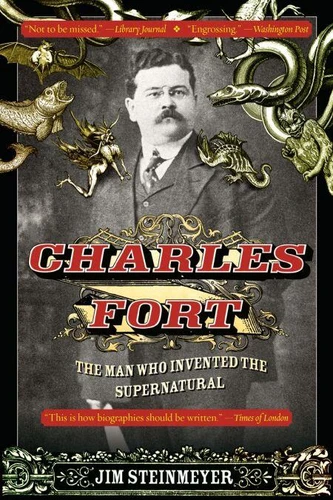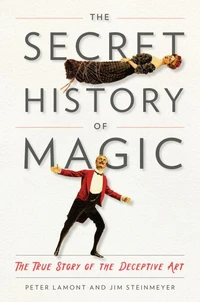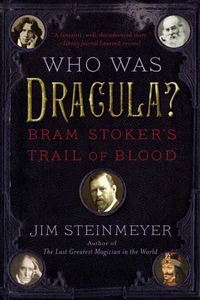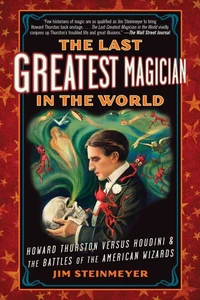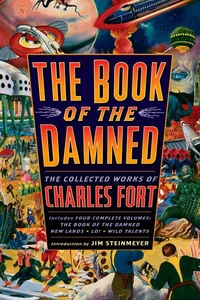Charles Fort. The Man Who Invented the Supernatural
Par :Formats :
Disponible dans votre compte client Decitre ou Furet du Nord dès validation de votre commande. Le format ePub protégé est :
- Compatible avec une lecture sur My Vivlio (smartphone, tablette, ordinateur)
- Compatible avec une lecture sur liseuses Vivlio
- Pour les liseuses autres que Vivlio, vous devez utiliser le logiciel Adobe Digital Edition. Non compatible avec la lecture sur les liseuses Kindle, Remarkable et Sony
- Non compatible avec un achat hors France métropolitaine
 , qui est-ce ?
, qui est-ce ?Notre partenaire de plateforme de lecture numérique où vous retrouverez l'ensemble de vos ebooks gratuitement
Pour en savoir plus sur nos ebooks, consultez notre aide en ligne ici
- Nombre de pages352
- FormatePub
- ISBN978-1-4406-3045-3
- EAN9781440630453
- Date de parution01/05/2008
- Protection num.Adobe DRM
- Taille1 Mo
- Infos supplémentairesepub
- ÉditeurTarcher
Résumé
The seminal biography of the twentieth century's premier chronicler of the paranormal, Charles Fort-a man whose very name gave rise to an adjective, fortean, to describe the unexplained. By the early 1920s, Americans were discovering that the world was a strange place. Charles Fort could demonstrate that it was even stranger than anyone suspected. Frogs fell from the sky. Blood rained from the heavens.
Mysterious airships visited the Earth. Dogs talked. People disappeared. Fort asked why, but, even more vexing, he also asked why we weren't paying attention. Here is the first fully rendered literary biography of the man who, more than any other figure, would define our idea of the anomalous and paranormal. In Charles Fort: The Man Who Invented the Supernatural, the acclaimed historian of stage magic Jim Steinmeyer goes deeply into the life of Charles Fort as he saw himself: first and foremost, a writer.
At the same time, Steinmeyer tells the story of an era in which the certainties of religion and science were being turned on their heads. And of how Fort-significantly-was the first man who challenged those orthodoxies not on the grounds of some counter-fundamentalism of his own but simply for the plainest of reasons: they didn't work. In so doing, Fort gave voice to a generation of doubters who would neither accept the "straight story" of scholastic science nor credulously embrace fantastical visions.
Instead, Charles Fort demanded of his readers and admirers the most radical of human acts: Thinking.
Mysterious airships visited the Earth. Dogs talked. People disappeared. Fort asked why, but, even more vexing, he also asked why we weren't paying attention. Here is the first fully rendered literary biography of the man who, more than any other figure, would define our idea of the anomalous and paranormal. In Charles Fort: The Man Who Invented the Supernatural, the acclaimed historian of stage magic Jim Steinmeyer goes deeply into the life of Charles Fort as he saw himself: first and foremost, a writer.
At the same time, Steinmeyer tells the story of an era in which the certainties of religion and science were being turned on their heads. And of how Fort-significantly-was the first man who challenged those orthodoxies not on the grounds of some counter-fundamentalism of his own but simply for the plainest of reasons: they didn't work. In so doing, Fort gave voice to a generation of doubters who would neither accept the "straight story" of scholastic science nor credulously embrace fantastical visions.
Instead, Charles Fort demanded of his readers and admirers the most radical of human acts: Thinking.
The seminal biography of the twentieth century's premier chronicler of the paranormal, Charles Fort-a man whose very name gave rise to an adjective, fortean, to describe the unexplained. By the early 1920s, Americans were discovering that the world was a strange place. Charles Fort could demonstrate that it was even stranger than anyone suspected. Frogs fell from the sky. Blood rained from the heavens.
Mysterious airships visited the Earth. Dogs talked. People disappeared. Fort asked why, but, even more vexing, he also asked why we weren't paying attention. Here is the first fully rendered literary biography of the man who, more than any other figure, would define our idea of the anomalous and paranormal. In Charles Fort: The Man Who Invented the Supernatural, the acclaimed historian of stage magic Jim Steinmeyer goes deeply into the life of Charles Fort as he saw himself: first and foremost, a writer.
At the same time, Steinmeyer tells the story of an era in which the certainties of religion and science were being turned on their heads. And of how Fort-significantly-was the first man who challenged those orthodoxies not on the grounds of some counter-fundamentalism of his own but simply for the plainest of reasons: they didn't work. In so doing, Fort gave voice to a generation of doubters who would neither accept the "straight story" of scholastic science nor credulously embrace fantastical visions.
Instead, Charles Fort demanded of his readers and admirers the most radical of human acts: Thinking.
Mysterious airships visited the Earth. Dogs talked. People disappeared. Fort asked why, but, even more vexing, he also asked why we weren't paying attention. Here is the first fully rendered literary biography of the man who, more than any other figure, would define our idea of the anomalous and paranormal. In Charles Fort: The Man Who Invented the Supernatural, the acclaimed historian of stage magic Jim Steinmeyer goes deeply into the life of Charles Fort as he saw himself: first and foremost, a writer.
At the same time, Steinmeyer tells the story of an era in which the certainties of religion and science were being turned on their heads. And of how Fort-significantly-was the first man who challenged those orthodoxies not on the grounds of some counter-fundamentalism of his own but simply for the plainest of reasons: they didn't work. In so doing, Fort gave voice to a generation of doubters who would neither accept the "straight story" of scholastic science nor credulously embrace fantastical visions.
Instead, Charles Fort demanded of his readers and admirers the most radical of human acts: Thinking.

